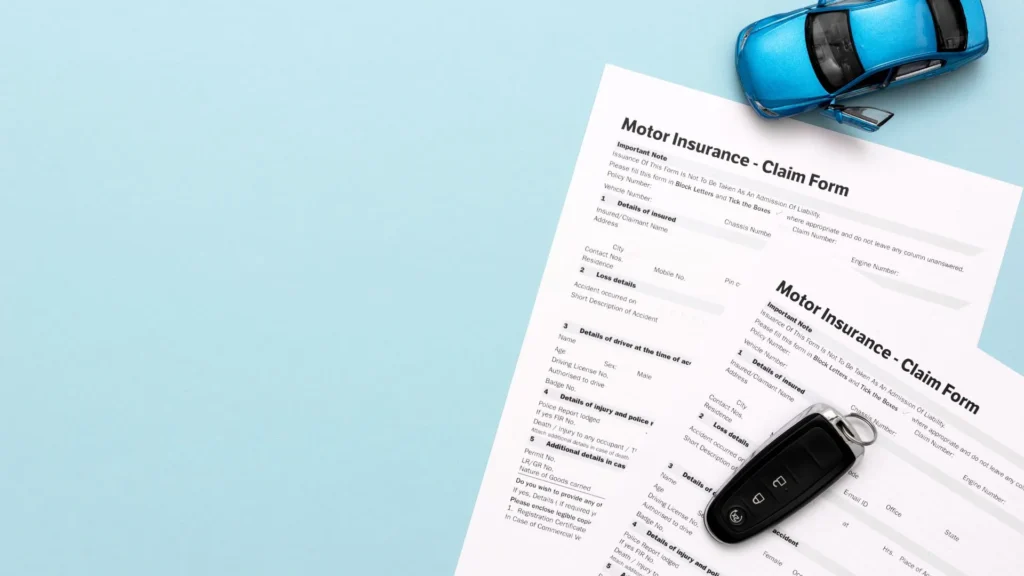Claims disputes are not uncommon in the auto insurance landscape. Whether you believe the fault determination was incorrect or your compensation needed to be revised, you may question whether you can dispute your auto insurance claim.
Yes, you have the right to dispute your auto insurance claim. Auto insurance deals are legal agreements that insurers must follow, just like you do.
Knowing how to challenge a claim is essential. In the following parts, we’ll explain why they might say no and how to make your case effectively. Amid all the uncertainties regarding auto insurance, check out Beem’s online comparison tool to get the best quotes and deals for your budget.
Can an Auto Insurance Claim be Denied?
At one point or another, many policyholders face the question: Can an auto insurance claim be denied? The straightforward answer to this question, however daunting it may seem, is affirmative. Yes, an auto insurance claim can be rejected.
It might sound strange because we usually think of insurance as a safety net, shielding us from money worries after accidents or car damage. But the truth is, insurance companies are mere businesses. They aim to make money while managing risks. So, when it comes to claims, they weigh many factors and sometimes decline them.
When we file a claim, it gets passed through a system that examines every aspect of the case. Everything is scrutinized, from the accident or damage, its cause, reported claim, and investigation details to policy coverage. The objective is to determine the claim’s validity, ensure it aligns with the policy terms, and calculate the applicable payout amount.
It’s worth noting that not all denied claims are indications of foul play or insensitivity towards the claimant’s predicament. Sometimes, a denial could result from procedural discrepancies, paperwork omissions, or misunderstanding of the claim details. Sometimes, things get tricky because of how our insurance works, who’s responsible, or legal stuff.
So, even though we’d like to think our insurer will always say yes, denials can happen. But your claim still needs to be made. Often, you can challenge the denial or do things to avoid it in the first place.
Understanding why a claim can be denied, how to react when it happens, and what steps can be followed to challenge the decision will put the policyholder in an empowered position to navigate this potentially complicated terrain of auto insurance claims.
See Also: How to Appeal a Car Insurance Claim Decision?
What Are the Reasons for the Denial?
Firstly, an insurance policy lapse might be the most frequent reason for a claim denial. A reverse occurs when a policyholder fails to pay the insurance premiums in their due time, causing cancellation of the policy.
During this lapse, the insurer does not cover any accident or damage incurred, leading to claim denial. Maintaining timely payment of your insurance premiums is essential to avoid such situations.
Secondly, unreported modifications to the insured vehicle are also a common cause of claim denials. If a car has been altered in ways the insurance company isn’t privy to, the policy may become null and void. This can range from performance enhancements to aesthetic transformations.
Always inform your insurer about any changes you make to your vehicle to avoid such pitfalls.
Thirdly, insurers classify specific drivers or driving conditions as high-risk based on statistical data. These can include young drivers, those with particular traffic violations, or drivers operating their vehicles late at night. Violating these restrictions could lead to denied claims.
It’s crucial to have a comprehensive understanding of your policy’s restrictions and abide by them.
Finally, your claim could be denied simply because your policy does not cover the damage. For instance, a basic policy might not cover damages from natural disasters, theft, or vandalism.
Make sure to understand what your policy covers fully. If you have any doubts, compare car insurance quotes from different providers using Beem and get up to 40% on your coverage.
Also Read: How Do Car Insurance Claims Work?
Top Reasons Why Your Claim Was Denied
Grasping the specific reasons for your claim’s denial is a pivotal part of formulating your dispute. With this knowledge, you can address issues accurately, supply the necessary documentation, and clarify any misunderstandings, paving your way toward a successful resolution.
Dealing with car insurance claims can be challenging when they say no. To fix it, let’s explore why they do that and share tips to help you.
1. Incomplete or Incorrect Info: Sometimes, claims are denied because the information you provide is missing or wrong. Make sure your details are accurate and complete.
2. Policy Doesn’t Cover It: Your insurance may not cover specific situations. Check your policy to see what’s included.
3. Late Reporting: Reporting the incident too late can lead to denial. Notify your insurer promptly after an accident.
4. Disputed Liability: If they think you’re at fault and you disagree, it can lead to a denial.
5. Investigation Issues: Problems during the investigation may also cause denials.
So, understanding these reasons and taking the proper steps can help you resolve these situations and get the necessary coverage.

Can you Appeal for a Denied Auto Insurance Claim?
When faced with a denied auto insurance claim, feeling overwhelmed is natural. However, it’s essential to remember that you have the right to appeal the insurer’s decision. Approach the situation methodically by following these key steps:
Stay Calm: Maintaining a calm and composed demeanor is crucial despite frustration or anxiety. Make rational decisions and stay focused on building a strong appeal.
Obtain the Denial Letter: Your insurance company should provide a formal denial letter elaborating on the reasons behind your claim rejection. This letter will be the foundation for your appeal strategy.
Study the Denial Letter: Carefully read the denial letter to comprehend the insurer’s reasoning. Understanding their perspective will help you construct a compelling counterargument, addressing their concerns directly.
Build Your Dispute: Based on the denial letter, gather evidence and arguments to challenge the insurer’s decision. Be thorough in addressing their rationale point by point.
Make Insurers Responsible: Insurance companies must show that their refusal follows the rules and your policy. If they can’t prove it’s fair or they’re maltreating you, it might be considered “bad faith.” In those cases, they could face legal trouble.
By carefully following these steps, you can methodically navigate the appeal process and increase your chances of a favorable outcome.
Key Ways to Appeal for a Denied Auto Insurance Claim
It’s a setback when they say no to your car insurance claim, but hope remains. A good appeal can often change their mind. Let’s look into a step-by-step approach to building a practical appeal:
Understand The Denial
The first step towards constructing a compelling request starts with a crystal-clear understanding of why the claim was initially denied. Your denial letter usually outlines this. Make sure you fully comprehend their reasoning before you begin the appeal process.
Collect All Relevant Documents
A robust appeal is backed by irrefutable evidence. Start gathering all related documents, including:
- Police report from the incident
- Witness statements (if any)
- Pictures or videos of the accident site
- Medical records (if injuries were involved)
- Your denial letter
Write a Formal Appeal Letter
Draft a thoughtful, sober-minded appeal letter to your insurance company. This should clearly state your disagreement with the denial decision.
Expand on why you believe the claim is valid and should be reconsidered, supporting your argument with references to your collected documents.
Consider Professional Help
In more complex cases, or if the denied claim involves substantial money, it could be prudent to seek professional help. An insurance claim lawyer or a public adjuster could provide invaluable expertise to strengthen your appeal.
Submit Your Appeal
Once your appeal is prepared, submit it to your insurance company. The insurer must reevaluate the claim in light of the new information.
The insurance company could then decide to accept your claim, negotiate a compromised settlement, or uphold their original denial decision.
Although there’s no guarantee of success, following these steps meticulously enhances your chances of getting a favorable outcome in your claim dispute.
Conclusion
Dealing with a denied auto insurance claim can be overwhelming. Understanding why they said no, grasping how the appeal process works, and being able to present your side convincingly are essential steps in facing such a challenge.
These actions can help you navigate the complex world of insurance claims with more confidence and clarity. Check out Beem to get the best car insurance quotes for your needs and avail up to 40% off on your coverage.
Remember, it’s essential to take proactive steps— from maintaining insurance premiums to understanding the specific terms of your policy.
These are crucial in preventing a claim denial and successfully disputing one. Although appealing doesn’t promise your claim will be approved, crafting a solid and well-thought-out response can enhance your chances of a positive outcome.
Whatever the outcome, navigating this experience certainly promotes a better understanding of your coverage, rights, and auto insurance landscape.





























